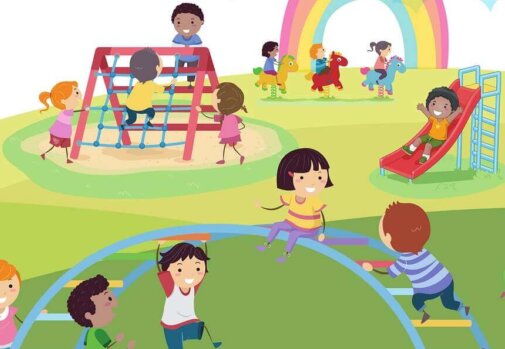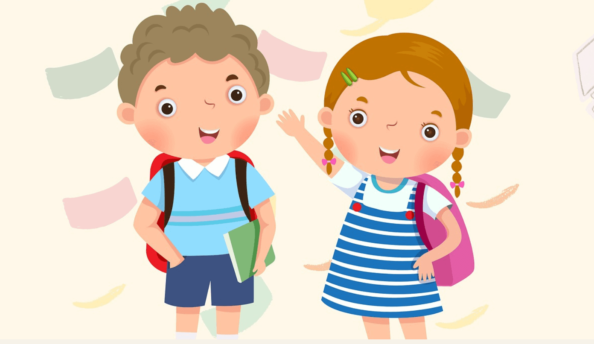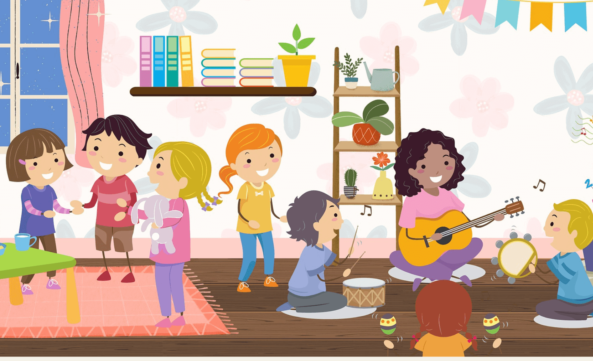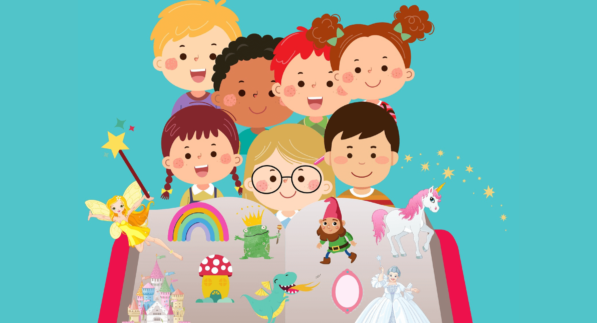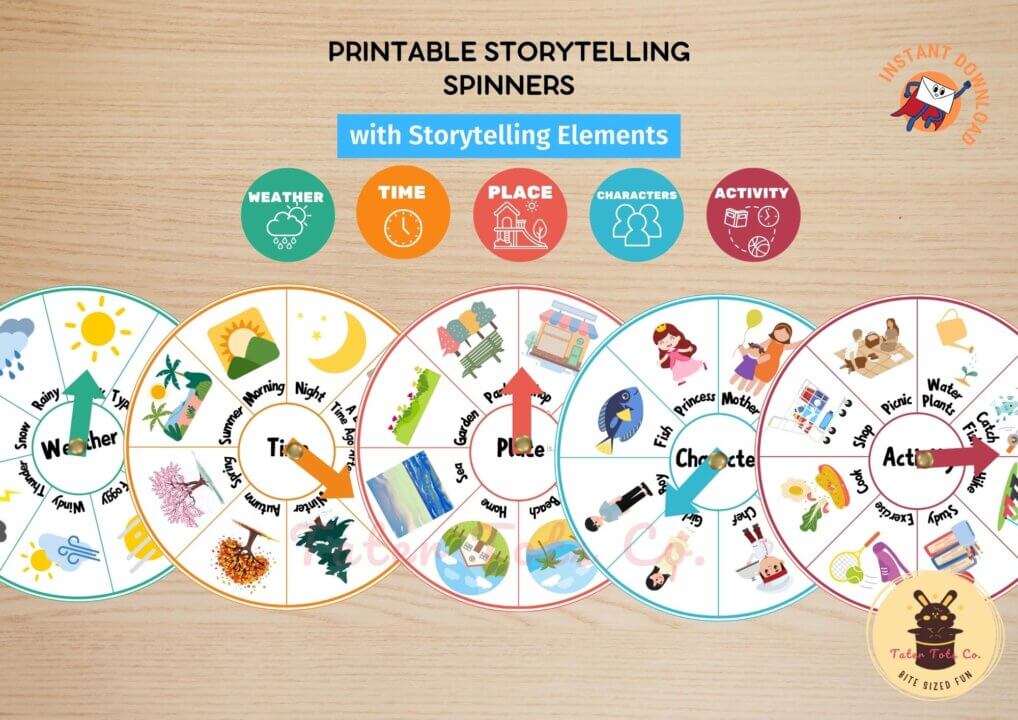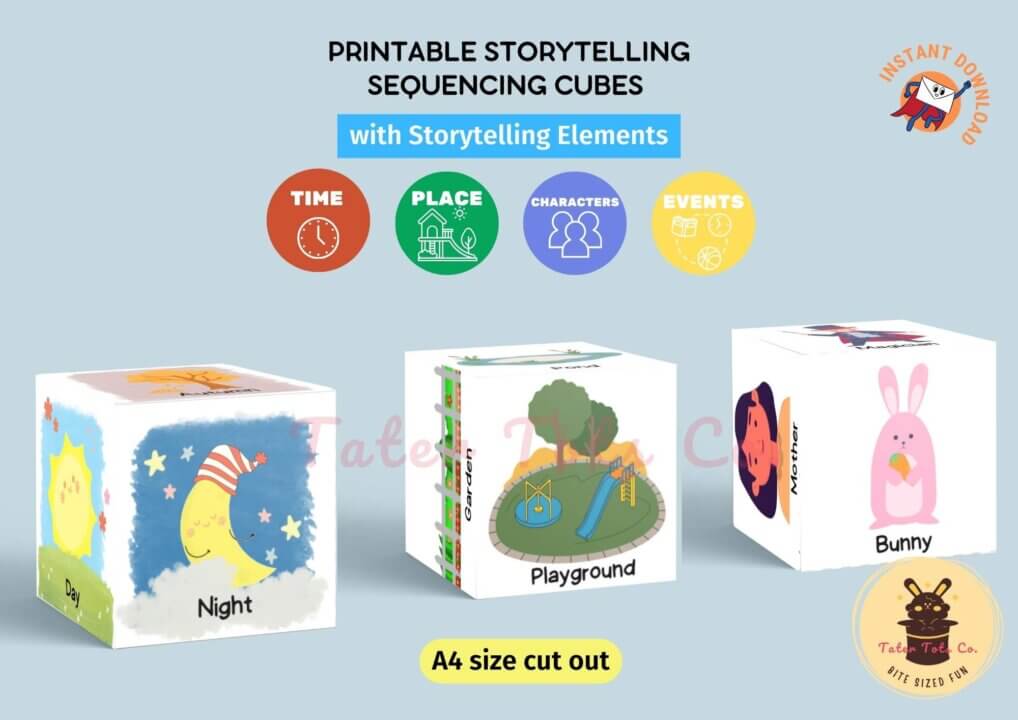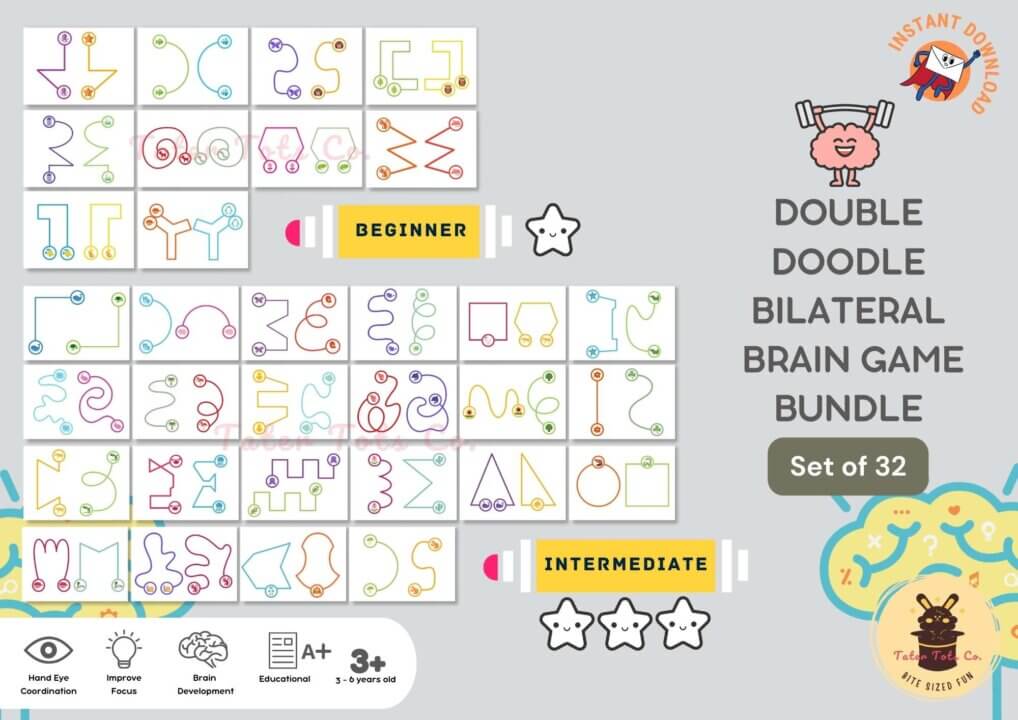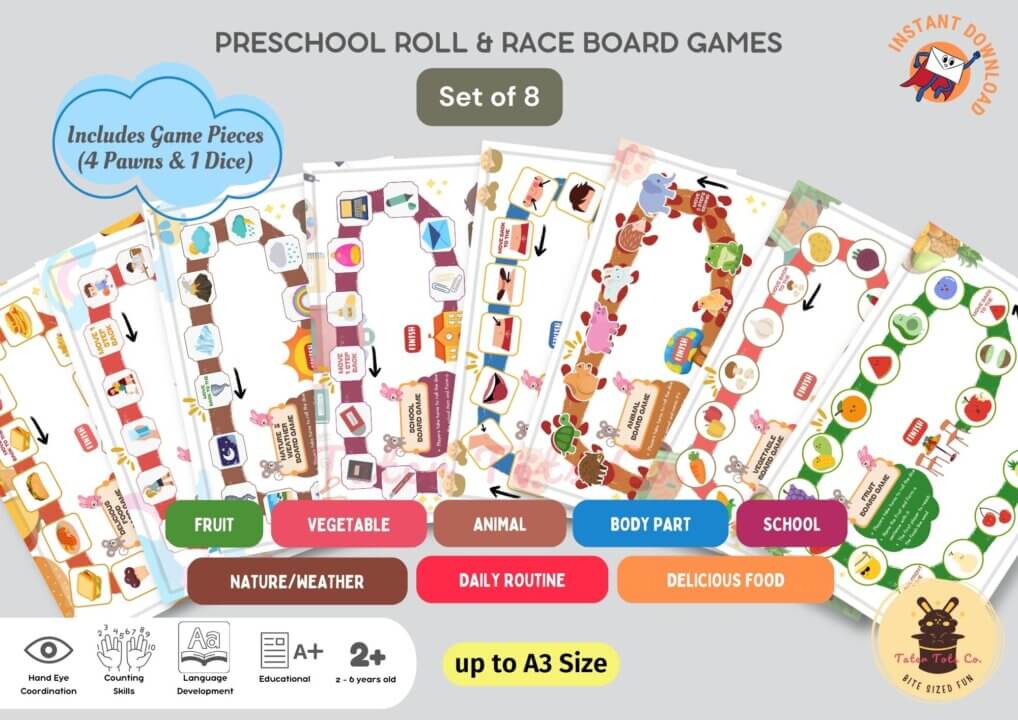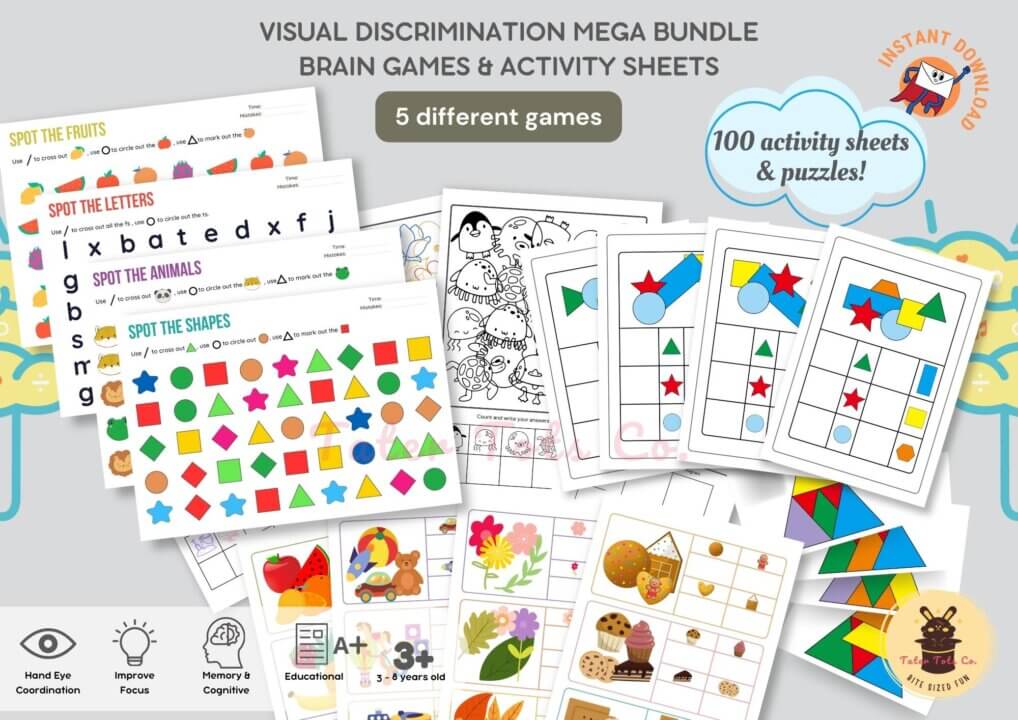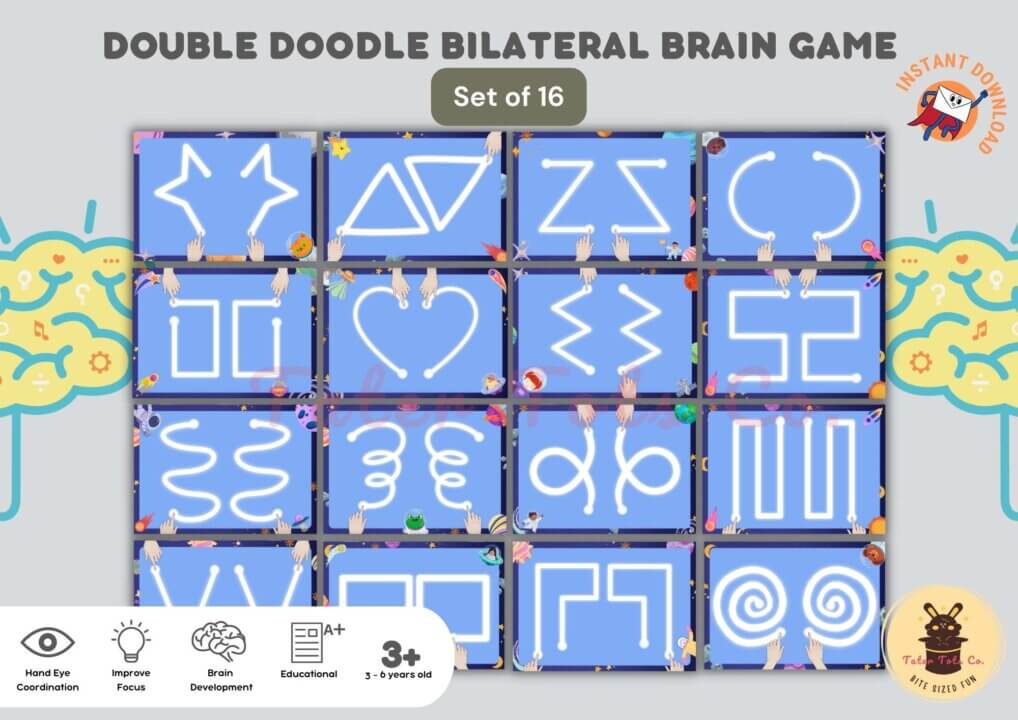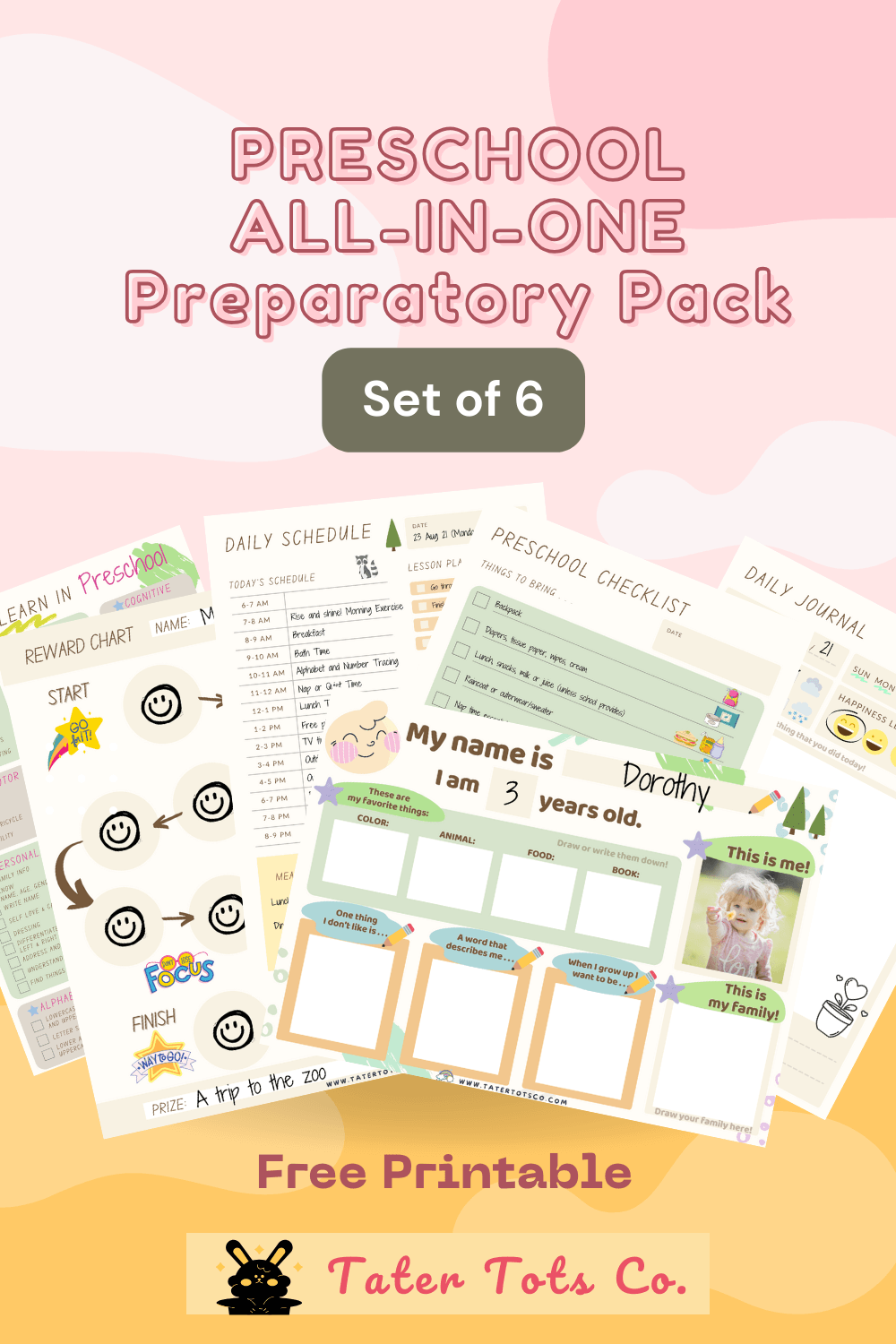
Fun Exercises to train a little kid’s brain
What are brain exercises and games?
Every parent wants their child to succeed in life and to be able to reach their full potential. A great way to help your child achieve this is by exercising their brain. By engaging in fun brain exercises, you can help your child develop skills such as memory retention, problem-solving, critical thinking, and creativity. These exercises will also help improve their academic performance and boost their confidence.
In this article, we’ll be sharing some fun and simple brain exercises that will help expand your child’s mind and keep them entertained at the same time. Get ready to boost your child’s little mind with these fun brain exercises!
Related Articles:
Free Printable DIY Board Game: Engaging Preschool Roll-and-Race Games
Free Printable Fingerprint Art Activities and Ideas for Toddlers
How to teach a preschooler to learn to read?
Ukulele for Kids (A Complete Beginners’ Introduction)
Let’s Go To The Supermarket! (Free Printable shopping game for kids)
The importance of brain exercises for kids
The importance of brain exercises for kids cannot be emphasized enough. Just like physical exercise is crucial for the development of a child’s body, engaging their minds in regular activities is essential for their cognitive growth and overall mental well-being.
Brain exercises stimulate various areas of the brain, enhancing neural connections and promoting the development of important cognitive skills such as memory, problem-solving, creativity, and critical thinking. These exercises help children improve their concentration, focus, and attention span, enabling them to better absorb and retain information.
Brain exercises play a vital role in shaping a child’s learning abilities and academic performance. They help children develop strong learning strategies, enhance their information-processing skills, and improve their ability to comprehend and apply knowledge effectively.
Beyond academic benefits, brain exercises also contribute to a child’s emotional and social development. By engaging in activities that challenge their thinking and problem-solving abilities, children learn to overcome obstacles, think creatively, and develop resilience. These skills not only boost their self-confidence but also equip them with valuable life skills that will serve them well into adulthood.
It is important to note that brain exercises for kids should be engaging, fun, and age-appropriate. Incorporating activities such as puzzles, memory games, word games, storytelling, and hands-on experiments can make learning enjoyable for children. By making brain exercises a part of their daily routine, parents and educators can provide a nurturing environment that stimulates their cognitive growth and sets them up for success in various aspects of life.
Benefits of engaging in brain exercises for children
Engaging in brain exercises can have numerous benefits for children. Not only do these activities provide entertainment and fun, but they also play a vital role in the cognitive development and overall growth of young minds.
One of the key advantages of brain exercises for children is the enhancement of critical thinking skills. These exercises encourage kids to analyze, solve problems, and think creatively, which are essential skills for academic success and everyday life. By engaging in brain exercises, children learn to approach challenges with a problem-solving mindset, fostering resilience and perseverance.
Furthermore, brain exercises help to improve memory and concentration in children. Activities such as puzzles, memory games, and word challenges require focused attention and the ability to retain information. Regular practice of these exercises can significantly enhance a child’s memory capacity and attention span.
Another notable benefit is the development of cognitive skills. Brain exercises stimulate various cognitive functions such as logic, reasoning, spatial awareness, and language comprehension. These exercises provide an opportunity for children to explore different concepts, strengthen their cognitive abilities, and expand their knowledge base.
Engaging in brain exercises also promotes brain health and mental well-being. Just like physical exercise is essential for keeping our bodies fit, brain exercises help to keep the mind sharp and active. Regular mental stimulation supports the development of neural connections, improves cognitive flexibility, and may even reduce the risk of cognitive decline later in life.
Moreover, brain exercises can be a great way to foster social interaction and collaboration among children. Many brain exercises can be done in groups or with the involvement of peers, encouraging teamwork, communication, and cooperation. This not only enhances social skills but also provides an enjoyable and engaging learning environment.
Fun and interactive brain exercises for cognitive development
One popular brain exercise is puzzle-solving. Puzzles come in various forms and difficulty levels, ranging from jigsaw puzzles and crosswords to logic puzzles and Sudoku. These activities challenge children to think critically, analyze patterns, and develop their spatial awareness. As they progress and complete puzzles, their confidence grows, and their ability to solve complex problems increases.
Another effective brain exercise for cognitive development is memory games. These games can be as simple as a matching game, where children flip over cards and try to find pairs, or more advanced memory challenges, such as remembering a sequence of numbers or colors. Memory games enhance concentration, improve memory retention, and strengthen cognitive skills like attention to detail and recall.
Building with blocks or constructing with Legos is not only a creative outlet but also a brain-boosting activity. These exercises improve spatial reasoning, hand-eye coordination, and fine motor skills. Children can let their imagination run wild while simultaneously developing their problem-solving abilities as they figure out how to build structures and make their creations stable and balanced.
Additionally, interactive educational apps and online games can provide a fun and engaging way for kids to exercise their brains. Many apps and games are specifically designed to target cognitive skills like memory, attention, and reasoning. These digital activities can be easily accessed on tablets or smartphones, making them convenient tools for parents to incorporate into their child’s daily routines but be sure to limit screen time.
Memory games and puzzles
Memory games and puzzles are excellent brain exercises for kids. Not only are they fun and engaging, but they also help boost cognitive skills and memory retention. These activities challenge children to pay attention, concentrate, and recall information, all while having a great time.
Memory games come in various forms, such as matching cards, sequence recall, or even digital versions available on tablets or smartphones. The objective is to find pairs or remember the location of specific images or patterns. By exercising their memory, kids learn to improve their ability to remember and retain information, which can be invaluable in their academic pursuits.
Puzzles, on the other hand, provide an opportunity for children to problem-solve and think critically. Whether it’s jigsaw puzzles, crosswords, or Sudoku, these activities encourage kids to analyze, strategize, and use their logical reasoning skills. As they work through the pieces or clues, children develop patience, perseverance, and the ability to think outside the box.
Check out our article on How to play easy Sudoku for preschoolers. Download free Sudoku Simple worksheets with solutions for kids. to start playing Sudoku with young kids!
Other than jigsaw puzzles there are other puzzle-like toys and games such as tangrams, Rubik cubes, color matching/sorting puzzles, sudoku, wooden blocks, magnetic tiles, snakes and ladders, etc. that kids can explore too.
Incorporating memory games and puzzles into a child’s routine can be as simple as setting aside dedicated playtime or making it a part of their learning activities. You can choose age-appropriate games and puzzles that align with your child’s interests and abilities. Additionally, there are numerous online resources and educational apps that offer interactive and challenging brain exercises designed specifically for kids.
If you’re looking for free online brain games then do check out our section on The Best Learning Sites, Educational YouTube Channels for preschool for more links to various online brain training activities.
Remember, the key is to make these exercises enjoyable and engaging. Consider turning them into a friendly competition or involving the whole family for some quality bonding time. By making brain exercises a regular part of your child’s routine, you can help boost their cognitive abilities, enhance their memory skills, and provide them with a solid foundation for learning and problem-solving.
Brain-boosting board games
When it comes to stimulating young minds, board games are a fantastic tool that combines fun and learning. Not only do they provide hours of entertainment, but they also offer numerous cognitive benefits for children. Brain-boosting board games help develop essential skills such as critical thinking, problem-solving, strategy building, and decision-making.
One such game is Chess, a classic that has stood the test of time. Chess requires players to think several steps ahead, analyze different scenarios, and make strategic moves. This game enhances concentration, memory, and logical reasoning in children. With each move, children exercise their brains and learn to anticipate their opponent’s actions.
Another popular board game that boosts little minds is Scrabble. This word-building game not only enhances vocabulary but also improves spelling and language skills. Children have to think creatively, form words from a limited set of letters, and strategically place them on the board for maximum points. Scrabble encourages critical thinking, problem-solving, and linguistic development.
For younger children, Memory Games is a great choice. These games involve flipping cards and matching pairs. By playing memory games, children develop visual perception, attention to detail, and memory retention. They learn to concentrate, focus, and improve their recall abilities. Additionally, memory games often feature vibrant and engaging illustrations, making them visually appealing and captivating for young players.
Teach young children about the supermarket, categorization, and sorting groceries with our fun and interactive game: Let’s Go To The Supermarket! (Free Printable shopping game for kids)
Brain-boosting board games are not only educational but also provide quality bonding time for families. They offer a break from screens and electronic devices, promoting face-to-face interaction and healthy competition. So, the next time you’re looking for an engaging activity that will challenge and entertain your child, consider adding brain-boosting board games to your collection.
Check out other brain training activity ideas here!
Creative arts and crafts activities
Engaging children in creative arts and crafts activities not only provides them with hours of entertainment but also stimulates their imagination and problem-solving skills. These activities are a fantastic way to boost little minds and encourage their creativity to flourish.
From painting and drawing to sculpting and collage-making, there are endless possibilities for creative exploration. Encouraging children to express themselves through art allows them to develop their fine motor skills and hand-eye coordination. It also gives them a sense of pride and accomplishment when they see their creations come to life.
One popular activity is finger painting, where children can use their fingers to create colorful masterpieces on paper or canvas. This sensory experience allows them to explore different textures and colors, stimulating their senses and enhancing their cognitive development.
Check out our article here to download free fingerprint activities for toddlers! Free Printable Fingerprint Art Activities and Ideas for Toddlers
Another creative outlet for kids is making collages. By cutting and pasting various materials such as colored paper, magazines, buttons, and fabric, children can create unique and visually appealing artworks. This activity encourages them to think critically, make decisions about shapes and colors, and develop their spatial awareness.
Sculpting with clay or playdough is also a wonderful way to unleash a child’s creativity. By molding and shaping the material, they can bring their ideas to life and experiment with different forms and structures. This hands-on activity enhances their concentration and problem-solving abilities, as they figure out how to transform their vision into a tangible piece of art.
In addition to these traditional arts and crafts activities, there are plenty of innovative options available today. For example, children can explore digital art through apps and programs specifically designed for kids. This allows them to create digital paintings and animations, and even design their characters. These digital tools provide a modern twist to traditional art forms and enable children to engage with technology while expressing their creativity.
Overall, engaging children in creative arts and crafts activities not only provides them with a fun experience but also nurtures their cognitive, motor, and imaginative skills. By incorporating these activities into their routine, parents and educators can help boost little minds and foster a lifelong love for creativity and self-expression.
Physical activities that stimulate the brain
Physical activities can be a fantastic way to stimulate the brain and promote overall cognitive development in children. Not only do these activities engage the body, but they also activate various areas of the brain, enhancing critical thinking, problem-solving skills, and creativity.
One example of a brain-stimulating physical activity is yoga for kids. Yoga poses and movements not only improve flexibility and balance but also encourage focus and concentration. The combination of deep breathing exercises and mindful movements helps children calm their minds and improve their ability to concentrate on tasks.
Another activity that promotes brain stimulation is dance. Dancing involves coordination, rhythm, and memorization of steps, all of which challenge the brain and improve cognitive skills. Whether it’s a structured dance class or a fun dance party at home, moving to the beat can provide a healthy dose of brain exercise.
Incorporating outdoor activities is also essential for stimulating young minds. Encourage children to explore nature through hiking, nature walks, or even gardening. These activities not only provide physical exercise but also expose children to new environments, stimulating curiosity and observation skills.
Additionally, activities that involve building and construction, such as building blocks or puzzles, engage children’s problem-solving abilities and spatial reasoning. These activities require children to think strategically, and plan, and manipulate objects to achieve their desired outcomes.
It’s important to remember that physical activities should be enjoyable and age-appropriate for kids. By providing a balance between physical exercise and brain stimulation, these activities can promote holistic brain development and keep young minds sharp, active, and ready for any challenge that comes their way.
Reading and storytelling
Reading and storytelling are essential activities for boosting little minds and fostering a love for learning in children. Engaging children in reading from an early age can have numerous cognitive and emotional benefits that can last a lifetime.
When children are exposed to books, they not only develop their language and vocabulary skills but also enhance their imagination and creativity. Reading allows them to explore different worlds, meet new characters, and embark on exciting adventures, all from the comfort of their own minds.
Storytelling, whether through reading books or storytelling sessions, helps children develop listening skills and comprehension abilities. It encourages them to actively engage with the narrative, ask questions, and make connections between the story and their own experiences.
To make reading and storytelling even more enjoyable for kids, you can incorporate interactive elements. Use funny voices, animated facial expressions, and gestures to bring the characters and the story to life. Encourage children to participate by asking them to predict what might happen next or to retell the story in their own words.
Furthermore, establishing a regular reading routine can create a sense of comfort and security for children. It can become a special bonding time between parents and kids, as they snuggle up together with a book and embark on a shared adventure. This promotes a positive relationship with reading and helps children associate it with warmth, love, and fun.
Remember to choose age-appropriate books and stories that match your child’s interests and developmental stage. Whether it’s a picture book for toddlers with colorful illustrations or an exciting chapter book for older children, make sure the content is engaging and relatable.
Incorporating reading and storytelling into your child’s daily routine not only provides entertainment and relaxation but also cultivates a lifelong passion for learning and discovery.
Check out our article on How to teach a preschooler to learn to read? or Reading Wands: A Magical Way to Help Kids Read (Grab your Free Cute Animal Face Reading Wand Templates) to incorporate reading into your child’s daily routine.
Incorporating brain exercises into daily routines
Incorporating brain exercises into daily routines is a fantastic way to boost your child’s cognitive development. By making these activities fun and engaging, you can turn learning into a playful experience while stimulating their brain.
One simple way to incorporate brain exercises into your child’s daily routine is through storytelling. Encourage your child to use their imagination and creativity by asking them to create their own stories. This not only enhances their language skills but also helps them develop their problem-solving abilities as they navigate through different plot twists.
Another effective brain exercise is puzzle-solving. Introduce age-appropriate puzzles such as jigsaw puzzles, Sudoku, or word games to challenge your child’s logical thinking and problem-solving skills. Completing puzzles also improves their concentration and attention span.
Physical exercise can also be a brain exercise in disguise. Encourage your child to engage in activities that require coordination, balance, and motor skills. Dancing, playing sports, or even practicing yoga can help strengthen their brain-body connection and improve their cognitive function.
Furthermore, incorporating memory games into your child’s routine can significantly enhance their memory retention skills. Simple activities such as matching games or memory cards can be played during playtime or before bedtime to help strengthen their memory and focus.
Lastly, encourage your child to engage in creative activities like drawing, painting, or building with blocks. These activities promote imagination, problem-solving, and critical thinking, all of which are essential for brain development
Setting aside dedicated time for brain exercises
Setting aside dedicated time for brain exercises is an essential step in boosting the cognitive development of children. Just like physical exercise, the brain also needs regular workouts to stay sharp and agile. By incorporating fun brain exercises into your child’s routine, you can provide them with a stimulating environment that enhances their mental abilities.
One effective way to set aside dedicated time for brain exercises is to establish a daily or weekly schedule. Designate a specific time slot when your child can engage in activities that challenge their thinking and problem-solving skills. This could be in the form of puzzle-solving sessions, interactive games, or even educational apps specifically designed to enhance cognitive abilities.
It’s important to create a consistent routine so that brain exercises become a natural part of your child’s day. This routine will help them understand the importance of mental stimulation and instill a sense of discipline in dedicating time to such activities.
During these dedicated brain exercise sessions, choose activities that are age-appropriate and align with your child’s interests. This will make the exercises more engaging and enjoyable for them. For younger children, activities like memory games, shape sorting, and pattern recognition can be beneficial. Older children may benefit from activities like word puzzles, Sudoku, or logic games that challenge their analytical thinking.
Remember to make the brain exercises fun and interactive. Incorporate rewards or incentives to motivate your child and make the experience more enjoyable. This will encourage them to actively participate and look forward to their brain exercise sessions.
Setting aside dedicated time for brain exercises not only enhances your child’s cognitive abilities but also fosters a love for learning and problem-solving.
Encouraging curiosity and exploration
Encouraging curiosity and exploration is essential for the healthy development of young minds. As parents and caregivers, it is our responsibility to create an environment that fosters these qualities in children.
One effective way to encourage curiosity is by providing opportunities for hands-on learning experiences. This can be done through interactive games, experiments, and engaging activities that stimulate their senses and spark their interest. For instance, setting up a science corner with simple experiments or creating a DIY art station can ignite their curiosity and inspire them to explore the world around them.
Another way to cultivate curiosity is by exposing children to a variety of experiences and perspectives. Taking them on educational outings to museums, libraries, or nature parks can help broaden their horizons and expose them to new ideas and concepts. Encourage them to ask questions, observe their surroundings, and engage in discussions to deepen their understanding.
Furthermore, embracing open-ended play is crucial in nurturing curiosity and exploration. Providing them with toys and materials that can be used in multiple ways, such as building blocks, art supplies, or pretend play props, allows children to use their imagination and explore different possibilities. This type of play encourages problem-solving skills, creativity, and critical thinking.
Lastly, be an active participant in their curiosity and exploration. Show genuine interest in their discoveries, ask them thought-provoking questions, and engage in conversations that encourage them to think critically and express their ideas. This positive reinforcement will further motivate them to continue exploring and seeking knowledge.
By fostering curiosity and exploration in children, we empower them to become lifelong learners and problem solvers.
Brain exercises for toddlers and Preschoolers

Brain exercises for toddlers and preschoolers are essential for their overall development and cognitive growth. These exercises not only engage their little minds but also promote learning, creativity, and problem-solving skills. Here are some fun brain exercises that you can incorporate into your child’s daily routine to boost their cognitive abilities.
- Puzzles and Sorting Games: Provide your child with age-appropriate puzzles and sorting games. These activities help develop their problem-solving skills, hand-eye coordination, and logical thinking. Start with simple puzzles and gradually increase the difficulty level as they progress.
- Memory Games: Memory games are a fantastic way to enhance a child’s memory and concentration. You can create your own memory game by placing a set of cards face down and encouraging your child to find matching pairs by flipping them over. This activity not only improves memory but also strengthens their focus and attention span.
- Pattern Recognition: Introduce pattern recognition activities to your child, such as arranging objects in a specific sequence or completing patterns using different shapes or colors. This exercise promotes logical reasoning and critical thinking skills in a fun and engaging way.
- Storytelling and Creativity: Encourage your child to engage in storytelling or imaginative play. This exercise stimulates their creativity, language skills, and cognitive abilities. Provide them with props or toys to bring their stories to life and encourage them to think outside the box.
- Music and Movement: Incorporate music and movement activities into your child’s routine. Singing songs, dancing, and playing musical instruments like the ukulele also help improve coordination, rhythm, and memory.
Interested to learn the Ukulele? Check out our short introduction to this musical instrument here Ukulele for Kids (A Complete Beginners’ Introduction)
These activities also enhance their listening skills and promote overall brain development.
Brain exercises for elementary school children
Elementary school is a crucial time for children’s cognitive development. It’s during this period that their brains are rapidly growing and absorbing new information. To ensure that their young minds are stimulated and their mental abilities are enhanced, it’s important to incorporate fun brain exercises into their daily routine. These exercises not only promote cognitive growth but also foster a love for learning in children.
One effective brain exercise for elementary school children is solving puzzles. Whether it’s jigsaw puzzles, crossword puzzles, or Sudoku, these activities challenge their problem-solving skills, improve their concentration, and enhance their logical thinking abilities. As they work through the puzzles, children learn to analyze information, think critically, and develop strategies to solve problems.
Another great brain exercise for elementary school children is memory games. These games not only sharpen their memory skills but also enhance their focus and attention span. Matching games, where children have to find pairs of cards with matching pictures or numbers, are particularly beneficial. They require children to pay attention, remember the location of different cards, and recall information to successfully match pairs.
Furthermore, engaging children in creative activities such as drawing, painting, or building with blocks can also serve as effective brain exercises. These activities encourage imaginative thinking, improve hand-eye coordination, and develop spatial awareness. Children can explore their creativity, experiment with colors and shapes, and enhance their problem-solving skills as they bring their ideas to life.
Incorporating physical exercise into the routine of elementary school children is equally important for their brain development. Physical activities like dancing, playing sports, or even simple exercises like jumping jacks or skipping rope not only promote overall health but also stimulate the brain. Exercise increases blood flow to the brain, improves concentration, and enhances cognitive abilities.
By incorporating these brain exercises into the daily routine of elementary school children, parents and educators can ensure that their little minds are constantly challenged and stimulated. These fun and engaging activities not only boost cognitive development but also foster a love for learning, setting the stage for a lifetime of intellectual growth and success.
How to make brain exercises enjoyable for kids
Making brain exercises enjoyable for kids is crucial to keep them engaged and motivated. Here are some effective strategies to make these exercises fun and exciting for little minds:
- Gamify the exercises: Transform brain exercises into games or challenges that kids can enjoy. Create colorful and interactive activities that allow them to earn points, badges, or rewards as they complete tasks or solve problems. This element of competition or achievement can make the exercises more enjoyable and encourage kids to participate actively.
- Incorporate storytelling: Integrate storytelling into the brain exercises to capture children’s imagination. Develop narratives or scenarios that require them to use their critical thinking skills and problem-solving abilities. By connecting the exercises with engaging stories, kids will feel more connected and motivated to participate.
- Use visuals and hands-on materials: Utilize visuals, such as colorful charts, diagrams, or illustrations, to make the brain exercises visually appealing. Additionally, incorporate hands-on materials like puzzles, building blocks, or flashcards to provide a tactile experience. These tangible elements can enhance overall enjoyment and help kids better grasp the concepts.
- Encourage group activities: Organize brain exercises in a group setting to promote collaboration and social interaction among kids. Whether it’s solving puzzles together or participating in team-based challenges, working as a group can make the exercises more interactive and enjoyable. Additionally, the sense of camaraderie and friendly competition can further enhance their experience.
- Allow flexibility and creativity: Give kids the freedom to approach brain exercises in their unique way. Encourage them to think outside the box, come up with creative solutions, and express their ideas. This flexibility allows children to feel more ownership and control over the exercises, making them more likely to engage and find enjoyment in the process.
Remember, the key is to strike a balance between educational value and fun. By implementing these strategies, you can create brain exercises that not only stimulate kids’ minds but also bring joy and excitement to their learning journey.
Incorporating rewards and incentives
Incorporating rewards and incentives into brain exercises for kids can make the learning process more enjoyable and motivating. When children know that there is a reward waiting for them at the end of a task or activity, they are more likely to engage and put in their best effort.
One effective way to incorporate rewards is through a points or sticker system. Every time a child completes a brain exercise or achieves a specific goal, they can earn points or receive a sticker. These points or stickers can be accumulated and exchanged for a small prize or privilege, such as extra playtime, a special treat, or choosing a favorite activity.
Another approach is to gamify the brain exercises. Turn them into interactive games with levels, challenges, and achievements. As children progress and accomplish certain milestones, they can unlock new levels or earn badges, creating a sense of accomplishment and excitement.
It’s important to choose rewards and incentives that align with the interests and preferences of the child. This can vary from small tangible rewards to intangible ones like praise, recognition, or a special outing with a parent or loved one.
Incorporating rewards and incentives not only makes brain exercises more enjoyable for kids but also helps to reinforce positive behavior and foster a love for learning. By creating a fun and rewarding environment, parents and educators can effectively boost little minds and make brain training an engaging and memorable experience for children.
Creating a supportive and nurturing environment
Creating a supportive and nurturing environment is essential for boosting the minds of young children. As parents and caregivers, we play a crucial role in shaping their learning experiences and overall development. By fostering an environment that is conducive to growth and exploration, we can help children thrive intellectually and emotionally.
One way to create a supportive environment is by maintaining a positive and encouraging atmosphere. Praise and acknowledge your child’s efforts and achievements, no matter how small they may seem. This will boost their self-confidence and motivate them to continue learning and exploring new things.
Additionally, it is important to establish clear routines and structure. Children thrive when they have a sense of predictability and stability in their daily lives. Set aside specific times for activities such as reading, doing puzzles, or engaging in educational games. This will create a sense of consistency and help children understand that learning is a valued and important part of their day-to-day lives.
Creating a physical space that is conducive to learning is also vital. Designate a specific area in your home for educational activities, such as a reading nook or a study corner. Stock it with age-appropriate books, puzzles, and educational toys to encourage independent exploration and learning.
Furthermore, ensure that your child has access to a variety of stimulating materials and resources. This can include age-appropriate books, art supplies, building blocks, and educational apps or websites. Providing a diverse range of materials will pique their curiosity and expose them to different subjects and concepts.
Lastly, be an engaged and involved parent or caregiver. Take an active interest in your child’s learning journey and participate in their activities. Ask open-ended questions, engage in meaningful conversations, and provide guidance and support when needed. This will not only strengthen your bond but also demonstrate the importance of learning and intellectual growth.
By creating a supportive and nurturing environment, we can help our children develop a love for learning and foster their intellectual growth. With the right environment and encouragement, their little minds will flourish and reach their full potential.
Tracking progress and celebrating achievements
Tracking the progress of your child’s brain exercises is not only important for their development but also for their motivation and self-esteem. By keeping a record of their achievements, you can create a sense of accomplishment and encourage them to continue engaging in these fun brain exercises.
One way to track progress is by using a chart or a journal specifically designed for this purpose. You can create a simple table where you can record the date, the exercise or activity completed, and any notes or observations you have about your child’s performance. This allows you to see their growth over time and identify areas where they may need additional support or challenges.
Another way to track progress is by setting goals with your child. These goals can be short-term, such as completing a certain number of puzzles or memorizing a specific set of words, or long-term, like improving their reading comprehension or problem-solving skills. By involving your child in the goal-setting process, they will feel more motivated and invested in their own progress.
Celebrating achievements is equally important in boosting your child’s confidence and enthusiasm for brain exercises. Whenever your child reaches a milestone or accomplishes a goal, take the time to acknowledge and celebrate their efforts. This can be as simple as giving them a high-five, praising their hard work, or even rewarding them with a small treat or privilege.
Remember, the key is to make tracking progress and celebrating achievements a positive and enjoyable experience for your child. This will not only help them stay engaged in brain exercises but also instill a sense of pride and a lifelong love for learning.
Setting goals and milestones
Setting goals and milestones is an essential aspect of boosting little minds and promoting healthy brain development in kids. It not only helps children stay focused and motivated but also teaches them valuable life skills such as organization, perseverance, and resilience.
When setting goals for kids, it’s important to make them age-appropriate and realistic. Start by discussing with your child what they would like to achieve or improve upon. It could be anything from learning a new skill, improving grades in school, or even completing a puzzle or book.
Once the goal is identified, break it down into smaller milestones that are achievable within a reasonable timeframe. This not only makes the goal more manageable but also gives children a sense of progress and accomplishment along the way.
For example, if the goal is to improve math skills, you can set milestones such as mastering addition and subtraction within a month, multiplication and division within two months, and so on. Each milestone achieved can be celebrated to keep the child motivated and engaged. It’s crucial to involve children in the goal-setting process and let them take ownership of their objectives. This fosters a sense of responsibility and empowers them to actively work towards their goals.
Furthermore, tracking progress is vital to keep kids motivated and engaged. You can create a visual tracker or chart where they can mark their milestones as they accomplish them. This not only provides a sense of achievement but also allows them to see their progress over time.
Remember, the key is to make goal-setting fun and enjoyable for kids. Incorporate rewards and incentives to keep them excited about reaching their milestones. These can be small treats, extra playtime, or even a special outing to celebrate their achievements.
By setting goals and milestones, you not only stimulate your child’s brain but also help them develop important life skills that will benefit them throughout their lives. So, encourage your little ones to dream big, set goals, and embark on a journey of growth and self-improvement.
The role of parents and caregivers in supporting brain development
Parents and caregivers play a crucial role in supporting the brain development of children. From the moment a child is born, their brain is like a sponge, eagerly absorbing information and making connections. It is during these early years that the foundation for future learning and cognitive abilities is laid.
One of the most effective ways parents can support their child’s brain development is through engaging and interactive experiences. This can involve simple activities such as reading books together, playing educational games, or even engaging in imaginative play. These activities not only stimulate the child’s brain but also foster important skills such as language development, problem-solving, and creativity.
Providing a rich and stimulating environment is another key aspect of supporting brain development. This can include exposing children to a variety of experiences, such as music, art, nature, and different cultures. Allowing children to explore and discover the world around them helps to create new neural connections and promotes curiosity and a love for learning.
Furthermore, a nurturing and supportive relationship with parents and caregivers is essential for optimal brain development. Children thrive when they feel loved, secure, and valued. Positive interactions, such as responsive and sensitive parenting, help to shape the child’s brain architecture and promote healthy socio-emotional development.
Additionally, parents and caregivers need to prioritize the basics of a healthy lifestyle, as this directly impacts brain development. This includes ensuring children get enough sleep, eat a balanced diet, engage in physical activity, and limit screen time. These factors all contribute to the overall well-being of a child’s brain.
Encouraging a healthy lifestyle and balanced routine
Encouraging a healthy lifestyle and balanced routine is crucial for boosting the little minds of children. It is well-known that a healthy body leads to a healthy mind, and establishing good habits from an early age can have a profound impact on a child’s overall development.
One of the first steps is to prioritize physical activity. Engaging in regular exercise not only helps children maintain a healthy weight but also promotes cognitive function and improves concentration. Encourage your child to participate in activities they enjoy, whether it’s playing a sport, riding a bike, or simply going for a walk in nature. The key is to make physical activity fun and incorporate it into their daily routine.
In addition to exercise, a balanced diet plays a vital role in supporting brain health. Ensure your child has a nutritious and varied diet that includes fruits, vegetables, whole grains, lean proteins, and healthy fats. Avoid excessive consumption of sugary snacks and processed foods, as they can negatively impact cognitive function and energy levels. Encourage your child to drink plenty of water and limit their intake of sugary beverages.
Establishing a consistent sleep routine is equally important. Sufficient sleep is essential for a child’s brain development and cognitive functioning. Set a regular bedtime and create a calming bedtime routine that helps your child unwind before sleep. Ensure their sleep environment is comfortable, quiet, and free from distractions such as electronic devices.
Balancing screen time is another crucial aspect of promoting a healthy lifestyle. While technology can be beneficial for learning and entertainment, excessive screen time can have negative effects on a child’s cognitive abilities and overall well-being. Set reasonable limits on screen time and encourage alternative activities such as reading, creative play, or engaging in hobbies.
Lastly, don’t forget the importance of relaxation and downtime for children. Just like adults, kids need time for rest. Encourage activities such as mindfulness exercises, yoga, or simply engaging in quiet play to help them unwind and recharge.
By encouraging a healthy lifestyle and balanced routine, you are setting the foundation for your child’s overall well-being and cognitive development. These simple yet impactful practices will not only boost their little minds but also contribute to their long-term success and happiness.
The long-term impact of brain exercises on children’s development
Engaging children in brain exercises not only provides immediate entertainment but also has significant long-term impacts on their overall development. These exercises stimulate various cognitive functions, enhancing memory, problem-solving skills, creativity, and critical thinking abilities.
Research has shown that regular participation in brain exercises during childhood can lead to improved academic performance, better concentration, and enhanced cognitive abilities. By challenging their minds through puzzles, games, and interactive activities, children develop stronger neural connections and neural pathways, which are crucial for learning and cognitive development.
Additionally, brain exercises promote the development of essential life skills, such as decision-making, strategic thinking, and perseverance. As children tackle complex problems and overcome obstacles, they learn valuable lessons in resilience and adaptability, which can benefit them in various aspects of life.
Brain exercises encourage children to think outside the box and explore their creativity. Whether it’s through drawing, storytelling, or engaging in imaginative play, these exercises foster innovative thinking and allow children to express themselves in unique ways.
Brain training idea: Brain teasers
Brain teasers could be in the form of riddles that help engage children in critical thinking and learning. Or they could also be in the form of simple games, magic tricks, or experiments that make children think of a solution. These help to develop problem-solving skills and increase cognitive functions by boosting critical skills.
Brain training idea: Sequencing Games
Sequencing helps a child to develop cognitively and mentally while learning important concepts such as matching, sorting, and cause-and-effect.
Learning to sequence items and pictures from left to right will help children grasp the concept and learn to read or write from left to right.
Storytelling cubes & spinners
These storytelling cubes and spinners help with sentence structure and story sequencing for preschool by helping kids understand how to structure a sentence using story elements such as time, place, characters, and the event.
Check out more Brain Training Resources!
Looking for a way to boost your little one’s brainpower while having a blast? Look no further! This Double Doodle Bilateral Game is designed to improve memory, motor, and communication skills in preschoolers.
Enjoy a fun and interactive game while providing a stimulating challenge for young minds. Whether played in a classroom, as part of homeschooling, or during family game nights, these exercises offer a fantastic way to enhance memory, motor skills, and communication abilities.
The key lies in drawing simultaneously with both hands. Using just their fingers or markers to draw, children engage both sides of their brain, strengthening connections between the right and left hemispheres. This bilateral activity not only improves coordination but also supports brain development and enhances cognitive functions.
No Prep/Low Prep Activity Ideas
No time to prepare these activities? Here are some quick, simple, and fun brain exercises you can do with your little one. You don’t need a lot of preparation and you can use items that are already readily available at home.
1. Memory Game: Take a few objects and place them in front of your child. Give them a few seconds to memorize the objects, then cover them up. Ask your child to recall as many objects as they can remember.
2. Pattern Recognition: Create a pattern with different objects such as blocks, stickers, or colors, and ask your child to continue the pattern.
3. Scavenger Hunt: Hide objects around the house or yard and create a list of clues for your child to follow. This exercise will help improve their problem-solving skills and critical thinking.
4. Storytelling: Encourage your child’s imagination by asking them to create a story
Conclusion
In conclusion, engaging children in brain exercises is not only beneficial but crucial for their overall development. The activities mentioned in this blog post offer a fun and interactive way to stimulate their minds and encourage cognitive growth.
By incorporating these brain exercises into their daily routines, parents and educators can provide children with the tools they need to thrive academically and socially. These exercises help improve memory, problem-solving skills, attention span, and creativity, setting a strong foundation for future success.
It’s important to remember that brain exercises should not be seen as a chore or an additional task for children. Instead, they should be presented as exciting and enjoyable activities that spark curiosity and ignite a love for learning.
Be sure to tailor these exercises to suit each child’s age, interests, and abilities. Every child is unique, and their learning journey should be personalized to maximize their potential.
In a world increasingly driven by technology, it’s easy for children to become passive consumers of information. However, by incorporating brain exercises, we can actively engage their minds, foster critical thinking, and enhance their problem-solving abilities.
We hope you enjoyed our article on fun brain exercises for kids. As parents and educators, we understand the importance of providing stimulating activities that promote cognitive development in children.
With the exercises shared in this article, you can engage your child’s imagination, enhance their problem-solving skills, and foster a love for learning. Incorporating these activities into your child’s routine will not only boost their little minds but also create lasting memories and moments of joy. So, let the fun begin, and watch your child’s mind flourish!
What’s your favorite brain training activity or game? Share them in the comments below!

Follow us on Facebook/Pinterest for the latest blog updates, freebies, and Ukulele printables.
Warmest Regards,
Access your child's readiness for preschool, know what to prep beforehand, printable templates included.
Here's what's included in the All-in-one preschool preparatory pack,
- Preschool Things to Bring/Pack Checklist
- What I can learn in Preschool checklist
- All About Me toddler activity poster
- Daily activity schedule for parents/child/childminder
- Preschooler daily journal template
- Reward Chart for behavior management
By agreeing to download this printable you will automatically be subscribed to our newsletter to get updates on new content, blog posts, videos, and other freebies straight to your mailbox.
Follow us to receive updates on new content!
